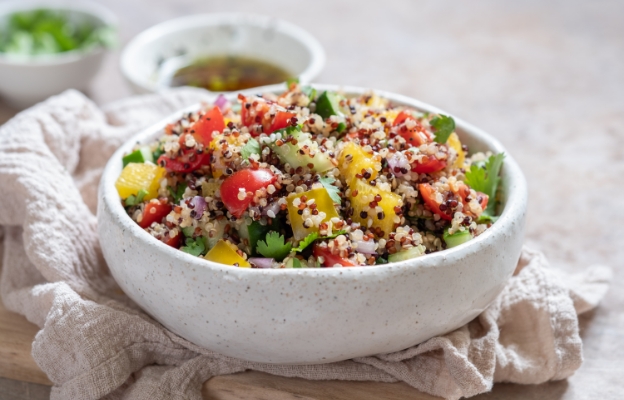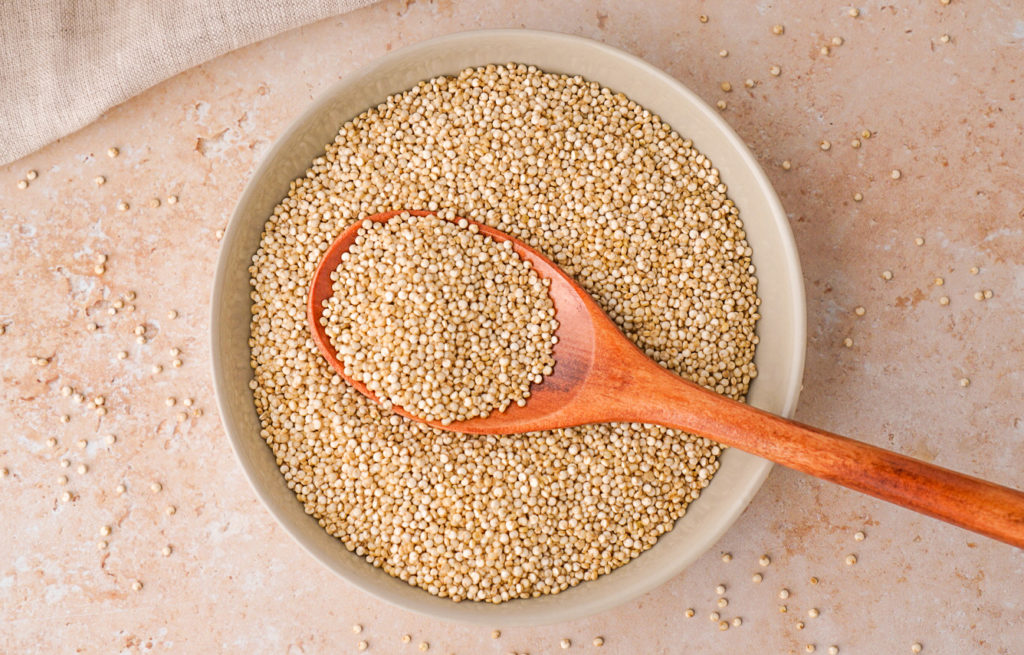Is Quinoa Gluten Free? Exploring its Origins and Nutritional Benefits
Several years ago my friend asked me if I had ever heard of a new trendy grain called quinoa. She went on to tell me that it’s gluten free, tastes good, and goes with many dishes! I hesitated to burst her bubble and inform her that this wasn’t a “new” grain at all! It had originated in the mountains of Peru, Chile, and Bolivia, and had been around for 5,000-7,000 years! Let’s delve deeper into the fascinating properties of quinoa.
Quinoa is categorized as a grain but technically is a seed. It comes from the spinach family and is the only grain to have all nine essential amino acids making it a protein powerhouse! Its rich history and nutrient profile make it an ideal addition to any diet.

Is Quinoa Gluten Free?
Yes! Quinoa is naturally a gluten free grain. However, even though it’s naturally gluten free, it’s considered a high-risk grain since it is often harvested with wheat, barley, and rye. Cross-contact may occur making it no longer safe for those with extreme sensitivities to gluten. If you have a severe allergy or celiac disease, it’s important to buy quinoa that is labeled or certified gluten free. Fortunately, Arrowhead Mills Organic Quinoa is gluten free and a great option for gluten-sensitive individuals.
Quinoa’s Nutritional Benefits
Quinoa not only provides a gluten free alternative but also offers a wealth of nutrients. It contains about 39g of carbohydrates per ½ cup serving (cooked). Despite the high carbohydrate amount, quinoa is low on the glycemic index. The glycemic index is a scale that measures how carbohydrates impact your blood sugar. Quinoa has a low glycemic index because it is rich in fiber and protein which help to regulate the rise and fall of blood sugar. If you follow a low-carb diet or keto-style diet, monitoring your quinoa serving size may be necessary.
Why Eat Quinoa?
Quinoa is not only high in fiber and protein but also packs many vitamins and minerals that are often lacking in many diets. It also offers a healthy, whole food source of carbohydrates and is rich in magnesium, potassium, iron, and folate. The combination of nutrients and its highly satiating properties has made it a valuable ally for weight loss and weight management. As a Registered Dietitian, I highly recommend adding this amazing grain to your routine to enhance your overall health.

Incorporating Quinoa Into Your Diet
Now that we’ve explored the gluten-free nature and health benefits of quinoa, you may wonder how to incorporate it into your daily meals. From salads to stir-fries, cooking quinoa can be a versatile way to add excellent nutrition and flavor to any dish. Check out our recipe section for delicious and creative ways to enjoy this ancient grain.
 VIEW ALL PRODUCTS
VIEW ALL PRODUCTS 
